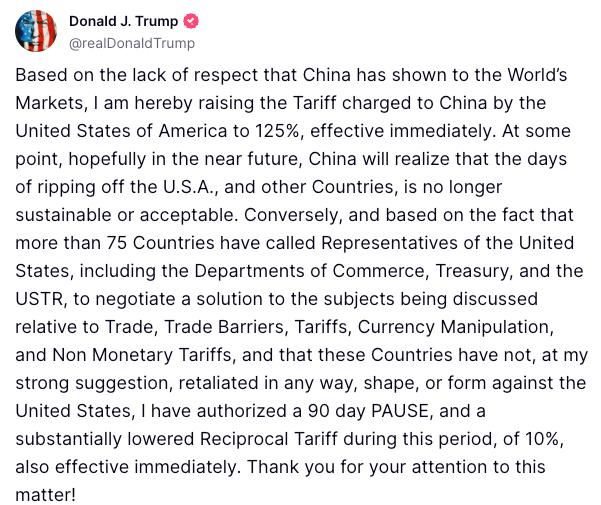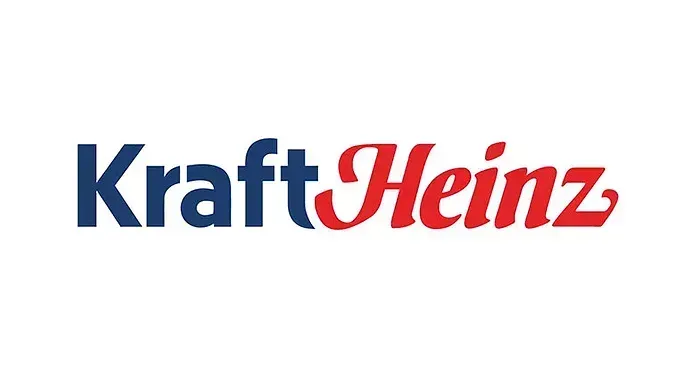President Donald Trump announced a 90-day pause on new tariffs for most countries, lowering the general tariff rate to 10%. According to the president, this will encourage trade negotiations with nations that have refrained from retaliatory measures. In contrast, tariffs on Chinese imports were significantly increased to 125%, citing China's lack of respect for global trade norms.
“Well, I thought that people were jumping a little bit out of line. They were getting yippy. They were getting a little bit afraid,” Trump said when questioned by reporters about this latest shift in policy. “Over the last few days, it looked pretty glum,” he added.

The White House press secretary, Karoline Leavitt, said the tariff level would be brought down to a universal 10 percent—a significant reduction for many countries. “When you punch at the United States of America, President Trump is going to punch back harder,” she said regarding tariffs on China.
“It took great courage, great courage for him to stay the course until this moment, and it ended up here,” the US Treasury secretary Scott Bessent said about the president's 90-day pause.
“This is one of the greatest days in American economic history… I think we’re going to call it the art of the reciprocal trade deal… All the nervous nellies who tried to undermine us consistently underestimate the power of the president,” Pete Navarro, close Trump ally and White House trade advisor, said to Fox Business.
The decision to pause tariffs comes amid global market volatility and concerns over a potential recession. The S&P 500 surged following the announcement, reflecting investor optimism. Treasury Secretary Bessent stated that over 75 countries have expressed interest in negotiating trade terms, leading to the temporary tariff reduction.
China responded to Trump's tariffs by imposing an 84% tariff on U.S. goods and filing a complaint with the World Trade Organization. The European Union also implemented 25% duties on select U.S. products totaling €21 billion. Economists warn that these escalating trade tensions could disrupt global trade stability and increase recession risks.
The 90-day pause is intended to allow tailored trade negotiations with various countries. However, the increased tariffs on China indicate a strategic focus on addressing specific trade issues with Beijing. The long-term impact of these policies on the global economy remains uncertain.










